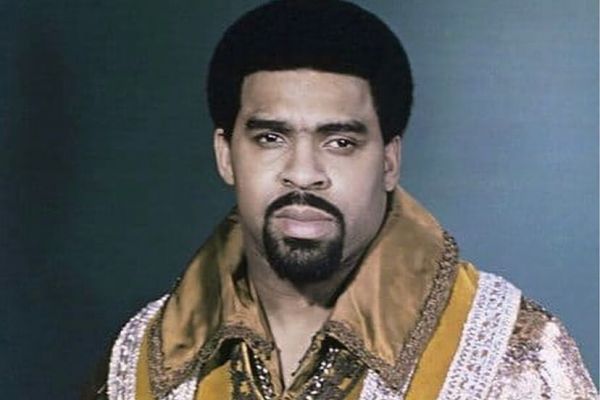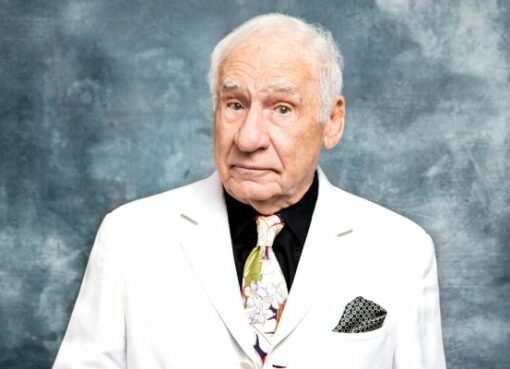At the age of 84, Rudolph Isley passed away. His silky vocals were featured on several Isley Brothers singles, such as Summer Breeze and That Lady.
His brother Ernie stated that the musician, who also co-wrote several of the band’s best hits, passed away peacefully in his sleep.
Rudolph Isley said in a statement,
“There are no words to express my feelings and the love I have for my brother.”
“We shall miss him as a family. However, I’m aware that he’s in a better place.
Rudolph sang lead vocals on many songs, including I’ve Got to Get Myself Together and It’s a Disco Night (Rock Don’t Stop), which made it into the UK Top 20 even though he mostly sang harmonies with the others.
Additionally, he was a key contributor to the compositions of hits like Fight The Power, Harvest For The World, and Shout, the timeless party hymn that became a huge smash in Europe thanks to Lulu’s cover.
The Isley Brothers, who were among the most important pop music acts when they were first founded in the early 1950s, transitioned from gospel to Motown soul, then to gritty R&B and politically charged funk.
The young group, which was originally made up of Vernon Isley, Ronald, Rudolph, and O’Kelly, was from Cincinnati, Ohio.
In 1955, after lead singer Vernon was slain while riding his bicycle, they briefly ceased touring. He was only thirteen years old.
After being convinced to go on, the others relocated to New York and stopped performing evangelical music.
They played a copy of Jackie Wilson’s Lonely Teardrops while on tour in 1959, driving the audience into a frenzy at the call-and-response portion.
As Rudolph Isley subsequently recalled, “audiences were coming to the theatre and waiting for the song” at the end of the trip.
Soon after, they adapted the outro into a song of their own. They brought in hundreds of friends to the studio to record it as soon as they got back to New York, hoping to recreate the intensity of their live performances.
Shout was that song, and it went on to become the first million-selling hit for the Isley Brothers. When it was inducted into the Grammy Hall of Fame in 1999, religious organizations protested.
In 2015, Rudolph Isley told the Wall Street Journal,
“We turned a gospel-inspired song into an R&B hit, and the groups began writing [to] disc jockeys asking them to stop playing our record.”
“They felt Shout should have been a church record.”
The brothers recognized they had a winning formula despite the criticism, and they achieved another hit in the early 1960s with the equally upbeat Twist and Shout.
Although the song was a cover, the band’s new arrangement was electrifying, reminiscent of the Top Notes’ original recording. The Beatles recorded it as the last track on their debut album because they loved it so much and used it as a mainstay of their live performances.
A young Jimi Hendrix joined the Brothers in 1964, and his guitar skills brought energy to songs like Testify before he went off on his own.
After a year, the band joined Motown Records, but they were stifled by the label’s production line philosophy.
This Old Heart of Mine (Is Weak for You), penned by the renowned Holland-Dozier-Holland combo with contributions from Sylvia Moy, was their lone hit during their brief tenure there.
After departing to establish their own record label, they reunited with their younger brother Ernie, whose raw guitar tones revitalized the group.
They began covering rock hits like Bob Dylan’s Lay Lady Lay and Stephen Stills Love The One You’re With after scoring a big hit with It’s Your Thing in 1969.
This led to a spectacular comeback, with a string of gold and platinum albums that combined James Brown’s and Sly Stone’s hard-edged funk with spacey psychedelic sounds and soul melodies.
Their 1973 album 3+3 revealed the extent of their metamorphosis when they added a scorching fuzztone guitar line to the upbeat 1964 hit Who’s That Lady, which shot to number six in the US charts.
Summer Breeze, Harvest For The World, Fight The Power, and The Pride were among the other singles that followed; Rudolph is listed as a writer on the latter three.
Rudolph Isley was distinctive on record sleeves with his colorful ensembles, which included furs and caps accented with a cane adorned with jewels.
Despite being the second-eldest son of the Isley family, Elizabeth Isley Barkley, his daughter, identified him as the band’s unofficial “overseer” in her memoir.
However, relationships were frequently difficult, just as in any family.
John Holbrook, an engineer who worked on multiple Isley Brothers records in the late 1970s, stated,
“At times, it got pretty heated within the family, and they’d be yelling at each other.”
“They were large, intimidating men. Rudy was the enormous and somewhat frightening one.”
Following O’Kelly’s heart attack death in 1986, Rudolph left the band and gave the cane to his brother Ronald in order to pursue his lifelong dream of becoming a Christian preacher.
Rudolph Isley said,
“Music and faith, they just run through our blood,” in the liner notes for a box set that the Isley Brothers released in 1999.
“I may have stopped singing pop music, but I will always be an Isley Brother.”
Despite this, he kept singing. In 1996, he released the religious album Shouting for Jesus, and he and his brothers were inducted into the Rock ‘n’ Roll Hall of Fame in 1992.
Rudolph Isley filed a lawsuit against Ronald in March, alleging that his brother had attempted to remove his sibling from the business by attempting to obtain a trademark for the Isley Brothers under his own name.
According to the lawsuit, the original members of the group were “at all times” a “common-law partnership”.
Ronald and Ernie are the only brothers from the band still alive after his passing.
Also Read: Who Is Katie Leung Currently Dating? Her Love Life





